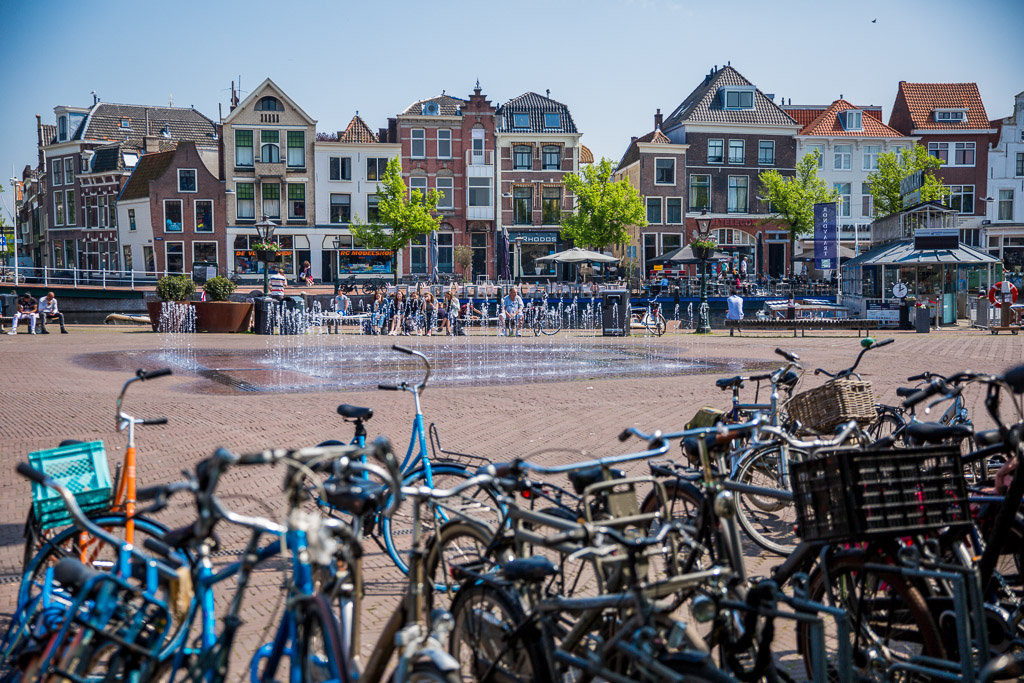
Economic Geography: Regional Competitiveness and Trade
Master

Do you want to become a specialist in regional economic development in an international context with a keen eye for the role of policy?
The track in Regional Competitiveness and Trade prepares you for a career in regional economic strategies and research in regional science.The track, which is part of the Master in Economic Geography and organized in cooperation with the Faculty of Economics and Business, focusses on regional and global competitiveness related to trade and Foreign Direct Investment (FDI). Trade and FDI importantly govern the interconnectivity between countries and regions and their subsequent economic development. The ongoing fragmentation of value-chains - an iPad is manufactured all over the globe - leads to increasing trade between countries and a growing global presence of multinational firms.How do global linkages between regions and countries influence their competitiveness? You will learn the latest theoretical (New Economic Geography) and methodological (Spatial Econometrics) approaches to address the issues of interconnectivity between regions through trade and FDI.Our graduates are specialists in regional economic development with a keen eye for the role of policy. They are well versed in the latest theoretical and empirical Economic models of regional growth.If you are interested in following a two-year programme in Economic Geography in two d
Ready to apply?
Visit course websiteLanguage
English
Title
Master of Science
Duration
1 year
ECTS credits
ECTS
The European Credit Transfer and Accumulation System (ECTS) is a student-centred system based on the student workload required to achieve the objectives of a programme of study. Its aim is to facilitate the recognition of study periods undertaken by mobile students through the transfer of credits. The ECTS is based on the principle that 60 credits are equivalent to the workload of full-time student during one academic year.
Accreditation
Tuition fee 2025/2026
EU/EEA
The EU/EEA rate is the regular fee for students from within the EU/EEA.
€ 2,601
Non-EU/EEA
The non-EU/EEA rate is the rate for students from outside the EU/EEA.
€ 21,400
Institutional
The institutional rate is for all students who have already obtained a bachelor’s or master’s degree and who want to start a second programme leading to a degree at the same level or at a lower level.
€ 20,500
Admission
Admission URL
Application requirements
*Direct access with a bachelor diploma in Human Geography & Planning; Urban and Regional Planning, and Spatial Planning and Design. Bachelor diploma's in Sociology, Business Administration, Small Business and Entrepreneurship, Micro-Economics are sometimes admissible as well. *Do you have another previous education? Then the assessment whether you have direct access will take place on individual basis. If you do not have direct access it will be assessed if you are admissible after a pre-mast
English on VWO level or one of the following equivalents: * IELTS overall band 6.5, no less than 6.0 on each section * TOEFL internet based: * Overall: 90 * Reading: 18 * Listening: 18 * Speaking: 20 * Writing: 21 * Cambridge English: Cambridge certificate C1 Advanced or C2 Proficiency (formerly known as CAE/CPE) * European Baccalaureate, English level L1 or L2 * Please note that TOEFL MyBest Scores are not considered in the Admissions procedure A prospective student can a
Check when you can start and what you have to pay!
| Tuition fees | |
|---|---|
| € 2,601 | |
| € 21,400 | |
| € 20,500 |
| Tuition fees | |
|---|---|
| € 2,695 | |
| Information not available | |
| Information not available |
| Start date | App. deadline EU/EEA | App. deadline Non-EU/EEA |
|---|---|---|
| 1 Feb '26 | 15 Jan '26 | 1 Nov '25 |
| 1 Sep '26 | 15 Aug '26 | 1 May '26 |
| 1 Feb '27 | 15 Jan '27 | 1 Nov '26 |
| 1 Sep '27 | 15 Aug '27 | 1 May '27 |
Contact
Main addressBroerstraat 5
9712 PC Groningen
050-3638100
Ready to apply?
Visit course website
